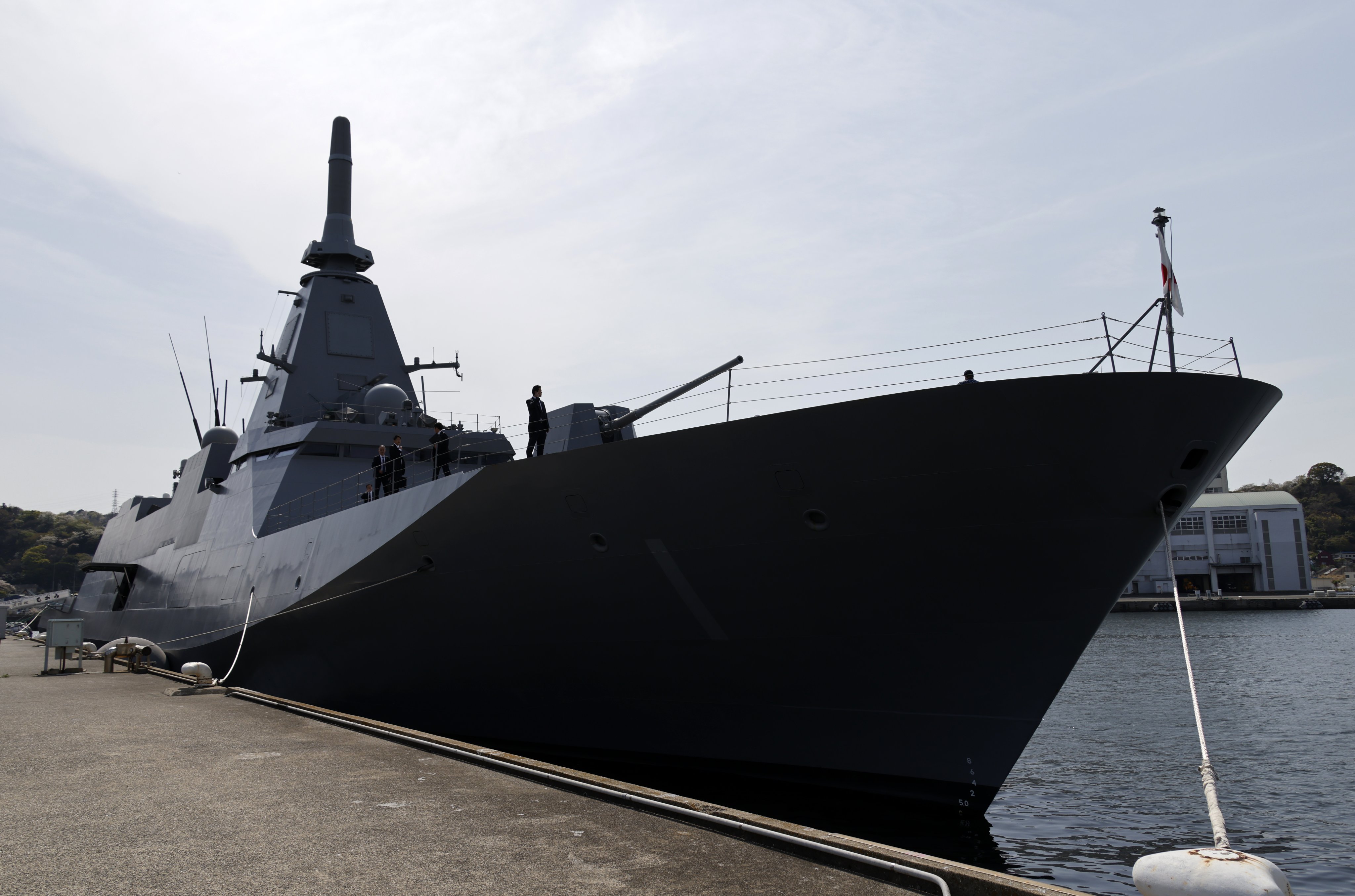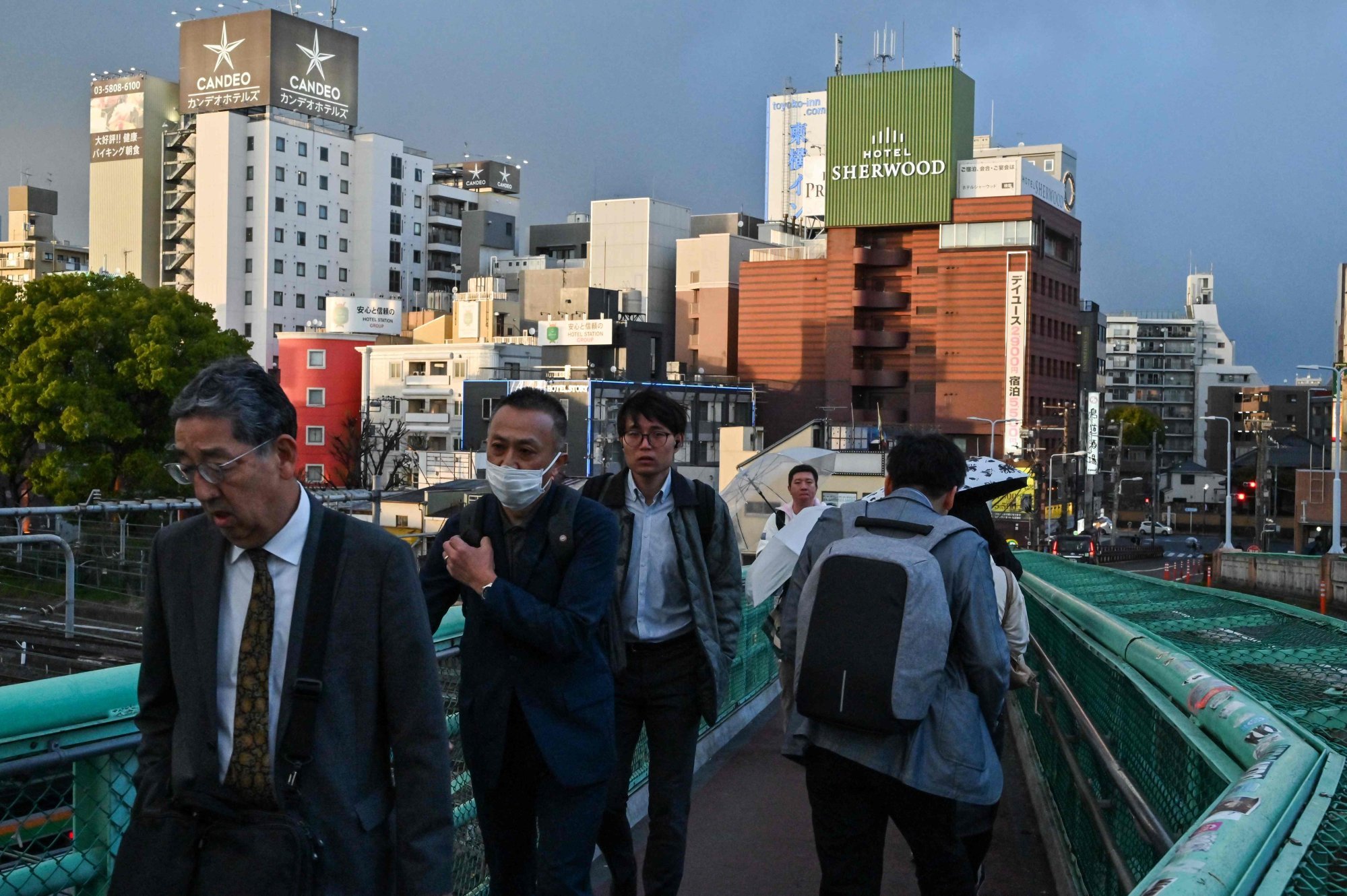Fear factor: more Japanese worry war ‘likely’ to break out in Asia, survey shows
Conflict in Ukraine and the growing assertiveness of China and North Korea are among the reasons for growing public anxiety, analysts say

Japanese people are increasingly fearful that war will break out in the Asia-Pacific region and that Japan will be dragged into the fighting, according to the results of a new survey, with rising tensions over disputed islands in the East China Sea adding to public anxiety.
A public-opinion poll published by the Asahi newspaper on Thursday found that 62 per cent of Japanese respondents feared the nation would be caught up in a conflict in the coming years. That figure is a sharp increase from the 50 per cent who expressed similar concerns a decade ago.
The survey, conducted nationwide between late February and early April, found that 12 per cent of Japanese believed war was “very likely”, while 50 per cent described it as “likely”. Just 5 per cent responded that there was no chance of a war breaking out.
“This does not come as a surprise at all and there are a couple of primary reasons why people are becoming more concerned,” said Ryo Hinata-Yamaguchi, an associate professor at Tokyo International University’s Institute for International Strategy.
“The first one is the activities of China and North Korea that we constantly hear about. It is clear that both countries have become militarily stronger and more authoritative in that time, and that will inevitably make people more concerned,” he told This Week in Asia.
“The other factor is obviously the war in Ukraine. Even though it is taking place geographically a long way away, the war has had a serious psychological effect on Japanese people because it has shown them that a major conflict can break out at any time and anywhere.”
With global security challenges mounting, debate within Japan has inevitably turned to how the nation can protect its citizens and its territorial integrity, according to Hinata-Yamaguchi.
That has led to discussions on greater defence spending, the threat posed to areas of Japan closest to rival nations – particularly the islands of Okinawa prefecture in the far south – and the broader implications of a potential conflict.
The Japanese government’s decision to step up defence spending, primarily focusing on air and maritime assets in the southwest of the country, had done little to ease public anxiety, Hinata-Yamaguchi added.
Events in areas around Japan have also caught the attention of the domestic media and the public.
Russia recently carried out large-scale air and sea exercises in the Pacific Ocean off the most northerly tip of Japan, while North Korea late last month unveiled a new 5,000-tonne warship, with state media showing the new vessel carrying out test launches of a range of missiles.
North Korea is also believed to be developing an advanced nuclear submarine with assistance from Russia, which is thought to have provided military hardware and expertise in exchange for about 12,000 troops and munitions to fight in the Ukraine war – a defence partnership that was previously banned under UN sanctions.

But it is China’s assertiveness in the East China Sea that remains Tokyo’s primary concern.
Over the past decade, Beijing has ramped up its claims over the Diaoyu Islands, an archipelago it disputes with Japan, where the islands are known as the Senkakus. Increased activity around the rocky islets has become an almost daily occurrence.
On Saturday, four Chinese coastguard vessels entered Japanese territorial waters around the islands, ignoring demands from Japanese vessels to leave the area. The Chinese vessels then launched a helicopter, prompting Japan’s Air Self-Defence Force to scrambled two fighters, although the Chinese aircraft was only airborne for about 15 minutes.
Japan’s foreign ministry said it made a “very severe protest” through the Chinese embassy in Tokyo, accusing the Chinese units of infringing upon Japanese sovereignty.
China made a similar protest against Japan’s actions and said it had acted in response to a civilian light aircraft approaching the islands. It is believed that the aircraft was chartered by a right-wing Japanese group to underline Japan’s claims to the territory. The Chinese foreign ministry said it was “strongly dissatisfied” with what it described as Japan violating its sovereignty over the islands.
“I think that the Japanese government and the Japanese public are more realistic about the security challenges that the nation faces than they were a decade ago,” Hinata-Yamaguchi said.
“Until the mid-1990s, Russia and the territorial dispute over the Northern Territories was the main security concern for Japan, but now China and North Korea are well ahead of Russia in terms of the threat to Japan.”

Despite growing awareness of the dangers, many Japanese are hesitant to discuss the nation’s security challenges openly, according to Izumi Tsuji, a professor of the sociology of culture at Tokyo’s Chuo University.
“The biggest fear for most people is a crisis over the Taiwan Strait that pulls Japan into a conflict. No one wants a war, but I think there is a feeling that we need to be able to at least defend ourselves as a nation,” he said.
Japanese people felt a war was becoming more likely given the growing power of nations, including China, Tsuji said.
“My parents were both born before the war and that generation of people knew the war and what results of that conflict for years afterwards,” he said. “People born after that time do not have that understanding, and many people just do not want to think about what could happen.”